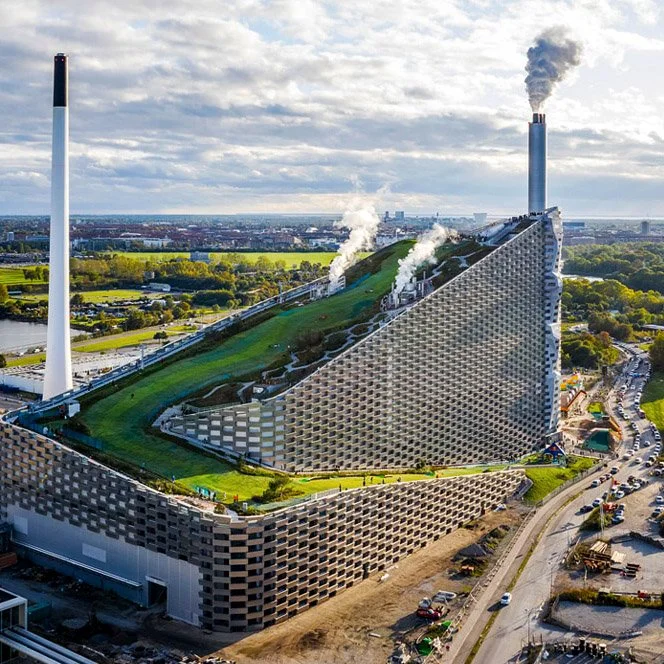City guide: 5 green cities
In a world increasingly conscious of its ecological footprint, the quest for sustainable living takes center stage in urban planning and development.
Around the globe, some cities have risen as exemplars of environmental stewardship, seamlessly weaving sustainability into the fabric of urban life. From Copenhagen's ambitious carbon-neutral goals to Singapore's harmonious blend of nature and urbanity, these cities are not just surviving; they're thriving.
In this article, we'll explore five such cities – Copenhagen, Amsterdam, Vancouver, Portland, and Singapore – each a beacon of green initiatives and sustainable practices.
Their successes offer a blueprint for a greener future, demonstrating the art of balancing urban development with ecological responsibility.
Green City Guide, from Copenhagen to Singapore, join our journey!
Green City Guide, from Copenhagen to Singapore, join our journey!
Copenhagen, Denmark
Copenhagen is frequently cited as one of the world's greenest cities.
The city has ambitious climate goals, aiming to become carbon neutral by 2025.
It's known for its bicycle-friendly infrastructure, extensive public transportation system, investment in renewable energy, and commitment to sustainable urban development.
Extensive bicycle infrastructure with over 390 kilometers of bike lanes.
Ambitious climate policies targeting 100% renewable energy.
Investment in wind power and district heating systems.
Green roofs and other sustainable urban development projects.
Copenhill (picture): Energy plant with a ski slope on the roof.
Amsterdam, Netherlands
Amsterdam is renowned for its extensive cycling culture and sustainable urban planning.
The city has a comprehensive public transportation network and is working towards reducing car usage in the city center.
Amsterdam is a global leader in sustainable living, with a strong focus on cycling, renewable energy, and innovative green spaces
World-renowned cycling culture with a comprehensive network of bike paths.
Commitment to reducing car usage and promoting electric vehicles.
Initiatives for sustainable food systems and energy-efficient buildings.
Ambitious goal to be 95% carbon-neutral by 2050.
Vancouver, Canada
Vancouver is often highlighted for its "Greenest City 2020 Action Plan," aiming to become the greenest city in the world.
The city focuses on green building, energy efficiency, and the expansion of green jobs and transportation.
It's also known for its significant green spaces and commitment to utilizing renewable energy sources.
Targets to reduce greenhouse gas emissions by 33% from 2007 levels.
Green building code for all new construction projects.
Extensive public parks and urban green spaces.
Significant investment in cycling infrastructure and public transportation.
Portland, Oregon, USA
Portland is recognized for its comprehensive recycling programs, extensive network of bike lanes, and large number of green buildings.
The city's urban planning prioritizes public transportation and pedestrian-friendly spaces, and it has a goal to reduce carbon emissions significantly.
Portland is renowned for its environmental consciousness, with a focus on recycling, green building, and eco-friendly transportation.
Comprehensive recycling and composting programs.
Home to the highest number of LEED-certified buildings per capita in the U.S.
Expansive network of bike lanes and well-utilized public transit system.
Initiatives for urban tree canopy expansion and protection.
Singapore
Known as the "Garden City," Singapore stands out for its integration of nature into urban life.
The city-state emphasizes sustainable urban development, efficient public transportation, and has implemented extensive green building standards.
Singapore also invests heavily in water recycling and green infrastructure.
Stringent green building requirements under the Green Mark Program.
Extensive public transportation network and limited car usage policies.
Innovative water conservation and recycling practices.
Large-scale green projects like Gardens by the Bay and the Green Plan 2030.
The journey through Copenhagen, Amsterdam, Vancouver, Portland, and Singapore reveals a compelling narrative of sustainable urban living. These cities, each in their unique way, demonstrate that embracing eco-friendly practices is not only essential for the environment but also enriches the quality of life for their residents.
Their innovative approaches to green initiatives – from extensive biking lanes and renewable energy usage to pioneering recycling programs and green building standards – set a benchmark for cities worldwide.
As we grapple with global environmental challenges, these urban havens stand as testaments to the possibilities of a sustainable future, inspiring us to reimagine our cities not just as places we live in but as spaces that live in harmony with nature.





